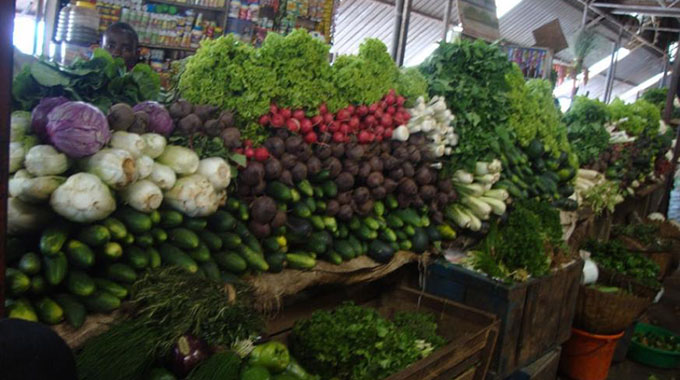
Michael Tome Business Reporter
ZimTrade has called on horticulture exporters to increase the quality and quantity of their produce to capitalise on the higher demand that will come after Covid-19 is overcome in Europe.
Already Netherlands — which is the biggest destination for Zimbabwean horticultural exports — has recorded noticeable increase in demand of fruits.
Fresh food markets in France have now closed as well, which is an additional blow to the agricultural industry, which already was severely affected by the closing of restaurants and hotels.
Already, markets around the world have started recording sharp increase in prices of horticultural produces such as vegetables and fruits.
Resultantly this has led prices of fruits like pineapples to increase from an average US$1,30 per kg as at 31 December 2019 to US$3,14 presently as consumers are seeking multivitamin foods rich in antioxidants to gain what they believe is a defense against the coronavirus.
Severe rise in the price of some fruits and vegetables has also been reported in Bulgaria due to increase in demand for fruits and vegetables which has increased by five to ten percent.
The local agriculture sector was, however, given an essential services status during the 21-day lockdown to operate with skeletal staff so as to guarantee minimal national food and nutrition security.
Due to the looming challenges in the food sector, ZimTrade has called on farmers including export oriented growers to increase their crop quantities in face of potential food dearth.
In a statement, ZimTrade said, “. . . it is important for local exporters to concentrate on production, ensuring that they increase output, which will make it easy for them to meet demands as soon as markets begin to open.
“We therefore encourage farmers and exporters of horticulture produce in Zimbabwe to focus on increasing quality and quantity so that they capitalise on the higher price once lockdowns end.”
According to Trade Map, Zimbabwe’s exports to Europe in 2018 were US$60 million from products such as precious stones, cut flowers, vegetables, raw hides and skins, leather, works of art and tobacco.
Agriculture sector is operating normally as critical agriculture services including the manufacture and supply of inputs encompassing seed, fertilisers, agro-chemicals, fuel, day old chicks, stock feeds, tillage services, spares of agriculture machinery, equipment and support services have been left to operate during the lockdown.
Covid-19 was first detected in China in December last year and the disease has spread across the globe and has killed thousands of people to date.
In Sub-Saharan Africa, South Africa has more than 1 462 confirmed cases, the highest so far.
